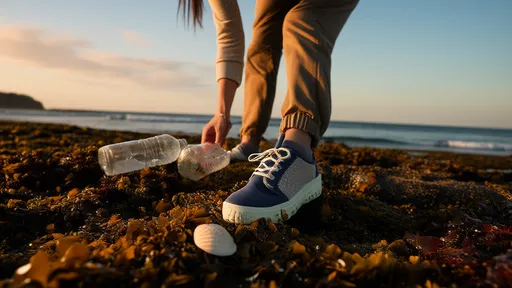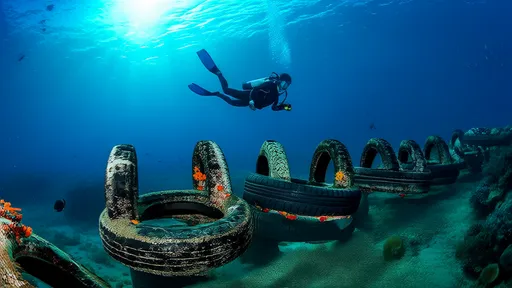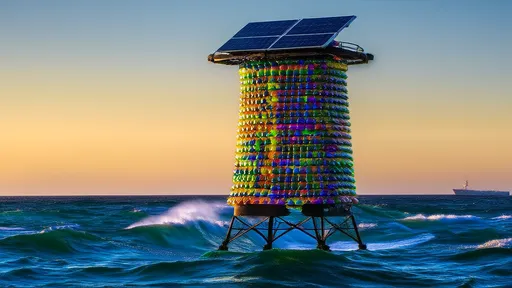The rugged coastline of Portugal has long been a magnet for hikers and outdoor enthusiasts, drawn to its dramatic cliffs, hidden coves, and sweeping ocean views. But beneath the beauty lies a growing environmental crisis—discarded fishing nets and marine debris choking the shores. In an innovative response, a local initiative is turning this waste into something unexpected: high-performance hiking boots designed specifically for coastal treks.
For years, volunteers along Portugal’s coast have organized cleanups, hauling away tons of plastic and abandoned fishing gear. Despite their efforts, the problem persisted. Then, a collaboration between environmentalists, designers, and footwear engineers sparked a radical idea. What if the very material polluting the coastline could be repurposed into gear for those who love it most? The result is a line of hiking shoes made almost entirely from recycled fishing nets, offering durability, traction, and a compelling sustainability story.
The process begins with the collection of nylon fishing nets, which are notorious for their longevity in the ocean—often taking centuries to decompose. These nets are cleaned, shredded, and processed into nylon yarn, which is then woven into the lightweight yet sturdy fabric used for the shoes’ uppers. The outsoles incorporate recycled rubber from other marine debris, creating a tread pattern optimized for slippery coastal rocks and sandy trails. Each pair of shoes diverts approximately two kilograms of waste from the ocean.
Local hikers testing the prototypes report surprising benefits. The shoes dry quickly after encounters with waves or rain, and the flexible design accommodates long hours on uneven terrain. "They feel like they were made for this landscape," says one trail guide from the Algarve region. Beyond functionality, the boots serve as a conversation starter. Visitors often ask about the unique, slightly textured appearance of the material, leading to discussions about marine conservation and Portugal’s broader sustainability efforts.
The project has also injected new energy into coastal cleanup efforts. With a tangible product as an end goal, volunteer participation has surged. "People see the nets not as trash, but as a resource," explains a coordinator for the cleanup initiative. Schools and businesses have joined in, hosting collection drives and sponsoring recycling bins at popular beach access points. The economic angle resonates, too—fishermen now bring damaged nets to designated drop-off points, earning small incentives while reducing their own environmental footprint.
Critics initially questioned the scalability of the idea, but the numbers are silencing doubts. Over the past 18 months, the program has recycled enough material to produce 12,000 pairs of shoes while clearing 30 kilometers of coastline. International outdoor brands are taking notice, with several exploring partnerships to adapt the technology for their own product lines. Meanwhile, Portuguese officials are considering policies to incentivize similar circular-economy projects nationwide.
As sunset paints the cliffs gold, a group of hikers laces up their recycled-net boots for an evening trek. The shoes carry more than just their weight—they embody a shift in how communities can tackle environmental challenges. By blending tradition with innovation, Portugal’s coastline is becoming cleaner, one step at a time.

By /Jul 16, 2025

By /Jul 16, 2025

By /Jul 16, 2025

By /Jul 16, 2025

By /Jul 16, 2025

By /Jul 16, 2025

By /Jul 16, 2025

By /Jul 16, 2025

By /Jul 16, 2025

By /Jul 16, 2025

By /Jul 16, 2025

By /Jul 16, 2025

By /Jul 16, 2025

By /Jul 16, 2025

By /Jul 16, 2025

By /Jul 16, 2025

By /Jul 16, 2025

By /Jul 16, 2025